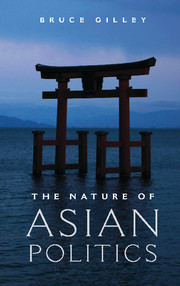4 - Democracy
Published online by Cambridge University Press: 05 September 2014
Summary
New Orders in Old Bottles
Since the 1980s, Asian politics has been transformed by the spread of democracy. Understanding democracy in the region requires understanding the long historical trajectories in which it is embedded. For that purpose, there is no better case than Indonesia, the region’s second biggest country after China.
The borders of Indonesia were roughly outlined by the great Majapahit kingdom of Java, which extended its influence over much of the contemporary country from about 1300 to about 1500 before breaking up into several kingdoms and sultanates. A hundred years later, those same boundaries became the target of the Dutch, who began their conquest with a trading post at the eastern Java town of Bantam in 1602 and continued to reclaim control over the Majapahit region until Bali was finally conquered on the eve of World War I.
While the power of the various sultans and indigenous rulers was subordinated under colonial law, the Dutch left most of those sultans and rulers in place and outi tted them with the apparatus of a modern state. The traditional conceptions of power and propriety that had arisen in the Javanese and Sumatran kingdoms of the Malay archipelago from the 600s to the 1500s remained remarkably resilient in the face of European colonization. If anything, Dutch rule tended to reinforce these conceptions, which were reinvented as what Kingsbury called “an authoritarian parody of traditional style.” What later became “Indonesian tradition” was largely an invention of colonialism.
- Type
- Chapter
- Information
- The Nature of Asian Politics , pp. 89 - 141Publisher: Cambridge University PressPrint publication year: 2014



